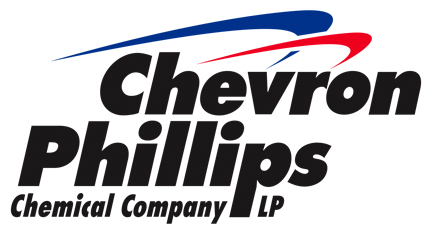With Richard Buck, Ph.D., Chevron Phillips Chemical Company
 When many postdoctoral researchers first arrive at Argonne they are surprised with the intensity, seriousness and depth of safety training at the laboratory. While safety is integral to how Argonne performs research as a laboratory, many early career postdocs often wonder if safety is taken seriously outside of the laboratory by American corporations and research institutes. The answer is yes.
When many postdoctoral researchers first arrive at Argonne they are surprised with the intensity, seriousness and depth of safety training at the laboratory. While safety is integral to how Argonne performs research as a laboratory, many early career postdocs often wonder if safety is taken seriously outside of the laboratory by American corporations and research institutes. The answer is yes.
At Chevron Phillips Chemical Company (CPChem) safety is taken quite seriously. CPChem is a global chemical producer jointly held by Chevron Corporation (NYSE: CVX) and Phillips 66 (NYSE: PSX). As a producer of a variety of products such as olefins, polyolefins, styrenic polymers and specialty products, CPChem must ensure the safety of its employees, its customers and the public.
“Creating a safe work environment is considered the highest priority across all our sites. Not only is this the right thing to do, but it also leads to better employee performance and is considered a hallmark of premiere chemical companies,” says Dr. Richard Buck, a research chemist at CPChem.
CPChem uses a set of ten Tenets of Operation outlining the company’s core principles to successful ensure the company’s work is performed safely and effectively. As a company CPChem commits to working safely by recognizing that there is always time to do things correctly and safely. The company believes that if it is worth doing, CPChem should do it better.
“These principles are regularly communicated throughout the company in a perpetual effort to maintain a vigilant work force,” says Dr. Buck, “Every employee has the authority and responsibility to ensure a safe work environment.”
This may sound quite familiar to postdocs, as Argonne uses a similar process called Integrated Safety Management (ISM) which is founded on seven principles and five core functions. ISM adheres to the objective that no work is so important that it is accomplished without proper safety measures.
At CPChem, responsibility for producing a safe work environment is considered the goal of every employee through application of the company’s ten Tenets of Operation, company policies and current safety programs. Safety training is actively tracked and implemented through both computer- and instructor led courses. CPChem uses online programs to document and recognize specific contributions employees make toward overall safety goals.
Fulfillment of safety principles occurs at CPChem through specific tasks such as training programs, employee-led observations and regular meetings. CPChem uses several tools such as job safety analysis, pre-startup safety reviews, process hazard analysis and management of change to minimize hazards and improve the quality of the company’s daily work.
The key applicable skill postdocs should take away from the Argonne experience is hazard recognition, advises Buck, which can often be tailored to provide improvements in the quality and reliability of processes and experiments.
“I think regardless of the future career paths Argonne’s postdocs choose, the safety training they receive now will prove an invaluable asset down the road,” says Dr. Buck.
Richard Buck holds a Bachelor’s degree in chemical engineering from Illinois Institute of Technology and a Ph.D. in chemistry from the University of Chicago. He is employed as a research chemist in the Polyolefin Catalyst and Product Development group at Chevron Phillips Chemical’s Bartlesville research site and has been with the company for seven years.

